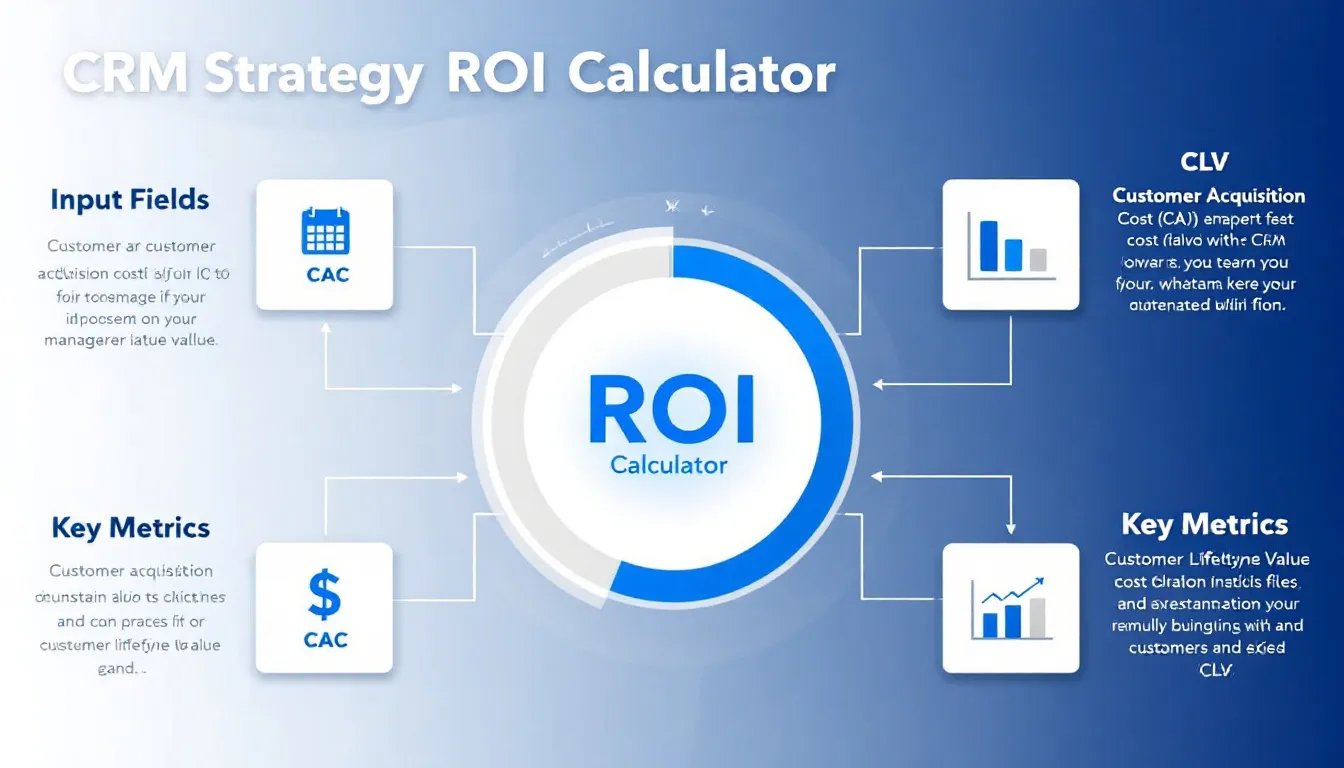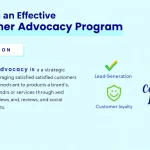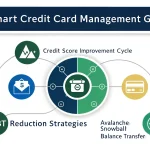Is this tool helpful?
How to Use the CRM Strategy ROI Calculator Effectively
This CRM Strategy ROI Calculator helps you define key success metrics tailored to your business goals and industry. To get the most accurate and useful recommendations, fill out each field clearly and specifically. Below is a guide to completing the form fields with examples different from the default placeholders.
1. Type of Business or Industry
Specify your business sector to receive tailored metric suggestions. Here are two sample inputs:
- Non-profit organizations focusing on community development
- Online education platforms offering professional courses
2. Main Goals for CRM Strategy
Define your primary CRM objectives clearly. For example:
- Enhance customer onboarding experience
- Boost upsell and cross-sell rates among existing users
3. Target Audience Description
Describe your ideal customers in detail. Consider inputs like:
- Freelancers and remote workers aged 25-40 using digital tools
- Mid-sized manufacturing companies in North America
4. Current Performance Metrics (Optional)
If you have existing data, share it here to help refine metric suggestions. Examples:
- Average customer support response time
- Monthly subscription churn rate
What Is the CRM Strategy ROI Calculator and Why Use It?
The CRM Strategy ROI Calculator is a practical tool designed to help you translate your CRM goals into measurable performance indicators. It guides you in selecting key metrics that reflect the impact of your CRM initiatives on business growth, customer retention, and operational efficiency.
By using this calculator, you can identify which aspects of your CRM system drive the best return on investment, enabling you to allocate resources wisely and improve your customer relationships effectively.
Benefits of Defining Key CRM Metrics with the Calculator
- Align your CRM goals with measurable outcomes. Turn abstract intentions into clear targets.
- Improve decision-making. Use data-driven insights to guide strategy adjustments.
- Monitor progress efficiently. Track your CRM performance against industry benchmarks and past results.
- Maximize your CRM investment. Focus on activities that deliver the highest returns.
Practical Use Cases for the CRM Strategy ROI Calculator
Since this tool processes your inputs and returns customized CRM performance metrics, you can apply its recommendations across various industries and business models. Below are practical ways different businesses use the calculator:
E-learning Platform
- Measure course completion rates to improve user engagement
- Track customer acquisition cost for different marketing campaigns
- Analyze average revenue per user for subscription tiers
Property Management Firm
- Monitor tenant retention rates
- Evaluate lead qualification speed
- Measure customer satisfaction after service interactions
Understanding ROI Calculations in CRM Strategy
Calculating the return on investment (ROI) from your CRM initiatives involves quantifying the financial outcomes relative to the costs incurred. The ROI formula you can consider is:
$$ROI = \frac{(Gains\:from\:CRM\:Investment – Cost\:of\:CRM\:Investment)}{Cost\:of\:CRM\:Investment} \times 100$$
This formula helps you understand how much value your CRM efforts generate compared to what you spend, giving you a percentage return figure.
By incorporating the tool’s recommended metrics, you can measure gains more precisely and calculate ROI consistently.
Common CRM Metrics Explained
1. Customer Acquisition Cost (CAC)
Calculate how much you spend to gain a new customer:
$$CAC = \frac{Total\:Marketing\:and\:Sales\:Costs}{Number\:of\:New\:Customers\:Acquired}$$
2. Customer Lifetime Value (CLV)
Estimate total revenue expected from a customer over their relationship with your business:
$$CLV = Average\:Purchase\:Value \times Purchase\:Frequency \times Average\:Customer\:Lifespan$$
Industry-Specific Metrics to Track
Retail Industry
- Repeat purchase rate
- Customer satisfaction index
- Average transaction value
Financial Services Sector
- Cross-selling rate
- Customer profitability
- Credit risk assessment accuracy
Advanced CRM Metric Insights
Customer Engagement Depth
Measure how actively customers interact with your brand:
$$Engagement\:Score = \frac{(Interaction\:Frequency \times Weight) + (Response\:Rate \times Weight)}{Total\:Possible\:Score}$$
Revenue Impact Analysis
Analyze net revenue changes tied to CRM activities:
$$Revenue\:Impact = (Increase\:in\:Customer\:Base \times Average\:Revenue\:per\:Customer) – Implementation\:Costs$$
Best Practices for CRM Metric Implementation
1. Maintain Data Quality
- Collect data consistently across channels
- Clean and validate data regularly to ensure accuracy
- Use uniform reporting templates for clarity
2. Communicate Metrics Clearly
- Hold regular review meetings with stakeholders
- Present data visually for easier understanding
- Focus on actionable insights and next steps
3. Commit to Continuous Improvement
- Regularly assess the relevance of your metrics
- Update benchmarks based on market changes
- Refine CRM strategies based on data-driven feedback
Important Disclaimer
The calculations, results, and content provided by our tools are not guaranteed to be accurate, complete, or reliable. Users are responsible for verifying and interpreting the results. Our content and tools may contain errors, biases, or inconsistencies. Do not enter personal data, sensitive information, or personally identifiable information in our web forms or tools. Such data entry violates our terms of service and may result in unauthorized disclosure to third parties. We reserve the right to save inputs and outputs from our tools for the purposes of error debugging, bias identification, and performance improvement. External companies providing AI models used in our tools may also save and process data in accordance with their own policies. By using our tools, you consent to this data collection and processing. We reserve the right to limit the usage of our tools based on current usability factors.







